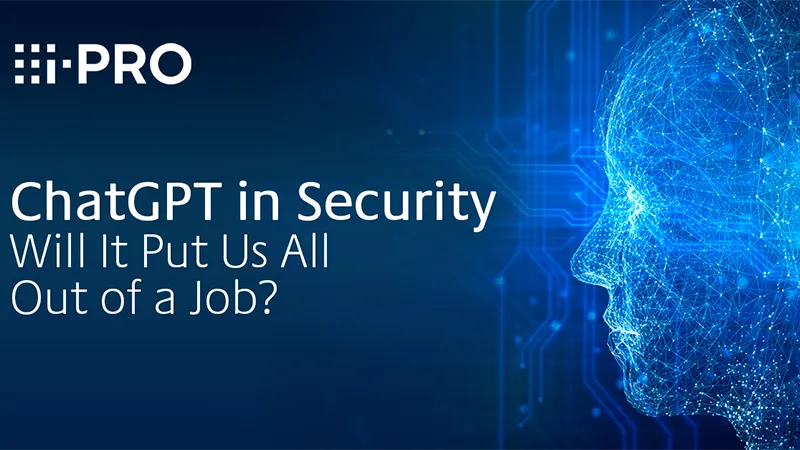
If you’re like me, then you can’t go more than five minutes without hearing something about ChatGPT from your friends, in your LinkedIn or social media feeds, or on YouTube. Everyone I know is either excited about the future of artificial intelligence (AI) or worried that they are going to lose their jobs to it. So, in this month’s blog, we will talk about what ChatGPT is, what it can do and what the future may hold for it.
What is ChatGPT? Perhaps it is best to ask ChatGPT itself. So, I asked ChatGPT what it was, and this is what it said:
ChatGPT is a language generation model developed by OpenAI. It is a variation of the GPT (Generative Pretrained Transformer) architecture, which is a type of deep learning model for natural language processing tasks. ChatGPT is specifically designed for generating human-like responses to text-based prompts. It has been trained on a large corpus of text data and uses this training to generate responses to new prompts that are relevant, coherent, and natural-sounding. ChatGPT can be used for a variety of tasks, such as question answering, conversation generation, and content creation. It is a highly advanced language model and is considered to be one of the most advanced AI systems for generating human-like text.
In much more simple terms, ChatGPT is an intelligent tool that a person can type a query into, and it will generate a response to that query based on data from its neural network. Think of it like Google, but with more concise, human-like responses.
The fear with ChatGPT and other AI platforms is that they will replace certain jobs, potentially putting people out of work. Jobs like customer service, content creation and code development will now be performed by AI. For example, I asked ChatGPT to write a C++ program for a calculator, and it produced a working calculator program in C++. I asked ChatGPT to write a two-sentence poem in the style of Edgar Allen Poe, and it wrote: “Amidst the stillness of the night, / The Raven's eerie croak takes flight.” Not bad, I guess, but then I’ve never been into poetry, so don’t take my advice.
What does this mean for people in the security field? Will it replace any jobs in our industry? In the short term, no. But in the long term, it might replace some customer service jobs. ChatGPT is very good at answering basic questions, which makes it a good frontline tool for any customer service or help desk position. However, once the questions get more technical or require more tailored answers, the service struggles. ChatGPT would be great at guiding customers to the right service desk for their needs or answering basic product questions, such as supported features or how to configure those features. Nevertheless, when it comes to more in-depth questions like which product is best for the customer, the service struggles to offer a substantive answer. I would highly recommend NOT relying on ChatGPT for compliance information. I think the algorithm needs a lot more training. When I asked it to determine if certain products met NDAA requirements, it did a poor job of understanding the NDAA requirements. The algorithm needs two things to be proficient: It needs data, and it needs to be trained on how to interpret that data. For compliance use cases, it just isn’t there yet.
In the next few years, I see ChatGPT as a great tool for augmenting customer service, reviewing plans and policies against known frameworks, providing basic technical guidance, consulting and helping with initial design work. More complex tasks will still need to be done by humans. Certain jobs may go away, but I don’t think that is the big picture with AI, at least not in the next decade. AI will free up precious hours that we lose every week on small tasks so that we can focus on work that AI can’t do. If you find yourself getting scared of the future, just remember that once upon a time people were worried that cars would put thousands of people out of work, but it had the opposite effect. Technology tends to create more job opportunities and better-quality jobs.
ChatGPT has some obvious limitations in our field; for example, it can’t do physical installs, and it certainly won’t be able to anytime soon. It also can’t think outside of the AI training, so it can augment some jobs in our field but not replace them. If a customer needs a security or surveillance system installed, they will still need i-PRO experts to make sure that they are getting the right products for their application, that the products are installed correctly and that the system is maintained.
Yes, I see the irony in writing a blog that ChatGPT could have written in a fraction of the time that it took me. But there is one important distinction (at least for now), which is that these blogs are my original thoughts, and ChatGPT is only capable of regurgitating information from its network. Change is coming, whether we like it or not. If we don’t adopt it, then someone else will. I think there is more value in embracing the change and finding out how to leverage it than in resisting the change and being left behind. To bring back the automobile reference from earlier, will you be the one holdout still making horseshoes long after the industry has moved on, or will you adapt and learn how to make tires?

Will Knehr is the Senior Manager of Information Assurance and Data Privacy at i-PRO Americas, Inc. where he works to secure their products and networks. He has been working to secure networks since 2004 when he started his career in Cryptologic Warfare conducting cyber defense missions for the NSA, CMF, DoN, DoD, and DISA – helping to defend, accredit, certify, and provide digital forensics and incident response on the nation’s most sensitive and secure networks. He also worked for Northrop Grumman supporting special projects for the NSA and DISA building virtualized environments for malware analysis, data brokering, and managing their cybersecurity program.